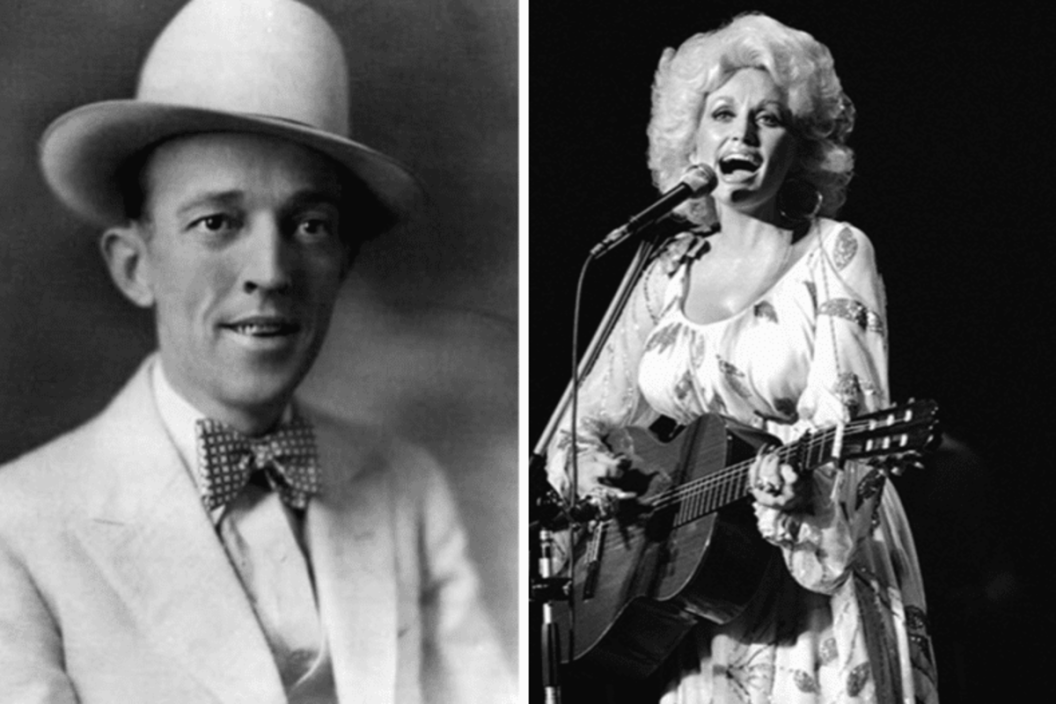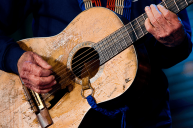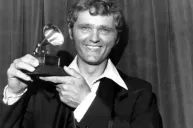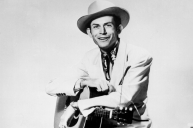After introducing Jimmie Rodgers to a wider audience, Ken Burns' Country Music used one of the Singing Brakeman's immortal compositions, "Mule Skinner Blues," as an example of a "hillbilly" tune that remained part of country music across decades of change. Great choice, considering this song went on to influence strands of popular and folk music for decades to come.
Videos by Wide Open Country
Rodgers and George Vaughn, a pseudonym for George Vaughn Horton, co-wrote the song, first recorded by Rodgers in 1930 as "Blue Yodel #8." From its "good morning captain" salutation to the last pleas of a hungry worker, the song pulls quite a few lines and themes from Tom Dickson's 1928 blues side "Labor Blues."
Rodgers' original recording did well enough to inspire a 1939 cover by Roy Acuff. Beyond his fiddle showmanship and role as the face and voice of the Grand Ole Opry, Acuff made country songs out of pre-existing old-time tunes. In the process, Acuff established "Mule Skinner Blues" as more than a yodeling "hillbilly" song with a limited shelf life.
After Rodgers and Acuff introduced the song to the masses, a cornerstone of a different roots-based genre took it in a new direction. Bill Monroe performed the song during his 1939 Grand Ole Opry debut and recorded it the following year for RCA Victor. Monroe cut a version with new lyrics by Horton called "New Mule Skinner Blues" in 1950, furthering the song's ties to the father of bluegrass.
Woody Guthrie introduced the song to folk crowds way back in 1944. Once the folk revival swept college campuses, "Mule Skinner Blues" entered the repertoires of Ramblin' Jack Elliott, Lonnie Donegan, Odetta, Joe D. Gibson and, later on, Bob Dylan. To these artists and others, Rodgers' fascination with work songs and 12-bar blues made his catalog rank high among the Southern music worth reviving.
Wisconsin-based rockabilly duo The Fendermen cut the next great version in 1960 for Soma Records. The dueling guitarists may have been one-hit-wonders, but that hit never really went away because of novelty song compilations.
https://www.youtube.com/watch?v=yeYH6tGbJzE
Over time, the American folk standard returned home to country music, primarily as a top-five hit in 1970 for Dolly Parton. Others within the genre to interpret one of Rodgers' masterworks include Merle Haggard, Rose Maddox, and Jerry Reed and Chet Atkins.
Monroe's influence also kept the Rodgers classic in the bluegrass songbook. A couple of bluegrass acts featuring the Grateful Dead's Jerry Garcia (The Wildwood Boys and Old & In The Way) kept the song relevant with a new generation of pickers. As did Muleskinner, the '70s supergroup featuring David Grisman, Clarence White, Richard Greene, Bill Keith, John Kahn, John Guerin, and Peter Rowan.
After considering this abridged list of acts to cover or revise "Mule Skinner Blues," it's hard to imagine anyone over 90 years ago thinking that yet another "Blue Yodel" recorded by one of the pop stars of his time (and inspired one of the blues players he admired) would've helped set the course for not just country music but also the birth of bluegrass and the roots of the folk revival.
This article was originally published in March of 2020.
'Mule Skinner Blues' Lyrics:
Good morning, Captain
Good morning, Shine
Do you need another mule skinner
Out on your new mud line?
I like to work
I'm rolling all the time
I can carve my initials
On a mule's behind
Hey, little water boy
Bring that water 'round
If you don't like your job
Set that water bucket down
Walking on the good roads
Dollar and half a day
My good gal's waiting on Saturday night
Just to draw my pay
I'm going to town, honey
What you want me to bring you back?
Bring a pint of booze
And a John B Stetson hat
I smell your bread a burning
Turn your damper down
If you ain't got a damper
Good gal, turn your bread around
Now Watch: 5 Country Stars 'Banned' From the Grand Ole Opry
https://rumble.com/embed/u7gve.v43t7d/




